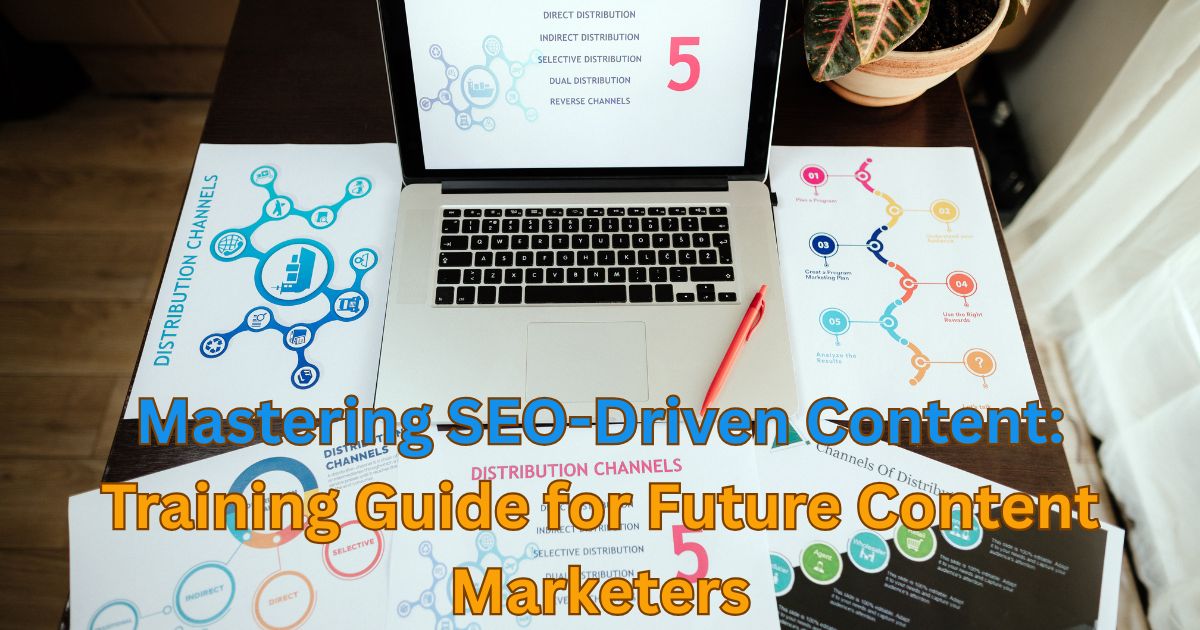
In the rapidly evolving digital landscape, the ability to craft engaging, SEO-optimized content is a must-have skill for anyone aiming to thrive in the marketing world. With businesses of all sizes turning to online platforms, understanding how to use content as a tool for visibility, conversion, and brand loyalty has never been more important. Whether you’re exploring a new career opportunity or looking to enhance your digital toolkit, becoming fluent in SEO-driven content is key to staying ahead.
Understanding Foundations of Content Marketing
To build an effective content marketing strategy, one must first grasp its core components. Content marketing goes beyond simply writing blogs or posting on social media—it’s about creating meaningful, targeted, and valuable information that resonates with a specific audience. As a future content marketing specialist, your role is to connect the dots between brand voice, audience needs, and data-backed optimization.
An effective strategy incorporates market research, keyword analysis, platform-specific content formats, and performance tracking. By aligning these elements, a content marketing agency can help businesses elevate their online presence and drive long-term success.
Keyword Integration: More Than Just Rankings
At the heart of SEO lies keyword integration. But stuffing articles with keywords is outdated and counterproductive. Instead, focus on strategic placement that enhances both searchability and readability.
For instance, using keywords like blog writing services or content creation agency in a way that supports the narrative ensures that your content remains both authentic and optimized. These keywords should guide your topic structure, anchor points, and internal linking strategy to improve both engagement and crawlability.
Writing with Purpose: Conversion as a Goal
One of the biggest challenges content marketers face is writing content that not only informs but converts. Understanding user intent is crucial—are they looking to learn, buy, compare, or solve a problem?
As a freelance content strategist, your job is to write with clarity and direction. This means using calls-to-action (CTAs), compelling headlines, and persuasive language that gently nudges the reader toward a desired action. Whether it’s subscribing to a newsletter or exploring a service page, your content should guide them effectively.
For example, mentioning content marketing services offered lead generation services by a reputed firm can be a great segue into promoting a downloadable lead magnet or encouraging inquiries. This practice blends education with subtle promotion—an approach favored by every top content marketing agency.
Tools of Trade: Must-Have Content Marketing Tools
Just like any profession, success in content marketing depends heavily on using the right tools. Platforms like Grammarly, Surfer SEO, SEMrush, and Google Search Console are essential for optimizing content performance.
These Top SEO software options allow marketers to analyze trends, track performance metrics, discover keyword gaps, and improve on-page SEO. As a budding content marketing freelancer, mastering these tools will enhance your productivity and accuracy.
Equipping yourself with the right tech stack also gives your clients confidence, especially if you’re positioning yourself as part of a content marketing company offering end-to-end services.
Training with GK Digital: Bridging Gap Between Theory and Practice
To truly master SEO-driven content, hands-on experience is crucial. That’s where training programs like those offered by GK Digital come in. Designed for aspiring marketers, our curriculum bridges academic concepts with real-world application.
Whether you’re keen to work with a best content writing agency or launch your own digital marketing firm, the training equips you with in-demand skills. You’ll learn everything from keyword mapping to editorial calendars to measuring campaign success using data.
Content Creation Tips from Industry Pros
Here are some timeless tips for creating content that performs:
- Start with research: Know your audience, competition, and keyword landscape.
- Structure matters: Use clear headers, bullet points, and short paragraphs.
- Make it visual: Add infographics, charts, or videos to break up text.
- Optimize naturally: Insert content marketing tools and keywords in a conversational tone.
- Measure and iterate: Regularly update old posts and track your KPIs.
By following these content creation tips, you not only improve the quality of your content but also boost your credibility and engagement rates.
Career Outlook: Where SEO Content Skills Can Take You
The demand for skilled content professionals is skyrocketing. From working at a content creation agency to becoming a content marketing freelancer, opportunities are abundant. Businesses are actively searching for professionals who can combine creative writing with technical SEO—a blend that turns visitors into loyal customers.
In fact, many innovative Business Ideas today are built around content, from niche blogs to YouTube channels to micro-influencer platforms. By mastering SEO-driven content, you’re opening doors to flexible, high-growth, and rewarding career paths.
FAQs About SEO Content Marketing
Q1: What are content marketing services?
A: These are strategic services aimed at planning, creating, distributing, and analyzing content to achieve business goals, such as traffic generation and lead conversion.
Q2: How does a content marketing agency help businesses?
A: They bring expertise, tools, and a team approach to developing and executing content strategies that align with business objectives.
Q3: Can I become a content marketing specialist without a marketing degree?
A: Absolutely. Many specialists start as writers or bloggers and grow through training, practice, and using the right tools.
Q4: What’s the difference between content writing services and blog writing services?
A: Blog writing services focus on regular, topic-specific articles, while content writing services may also include website copy, product descriptions, newsletters, and more.
Q5: What tools are best for content marketing?
A: Top tools include SEMrush, Ahrefs, HubSpot, Grammarly, and Google Analytics.
Are you ready to sharpen your content skills and become a future leader in digital storytelling? Drop your thoughts or questions below—we’d love to hear what inspired your content marketing journey!







